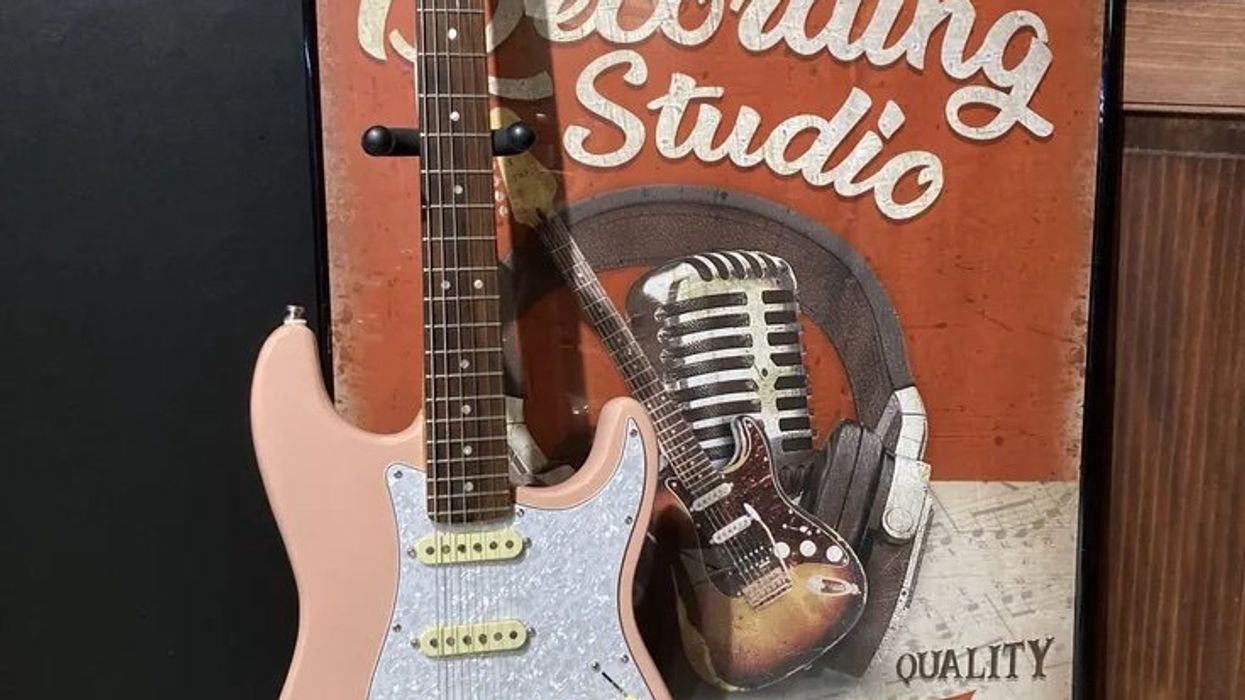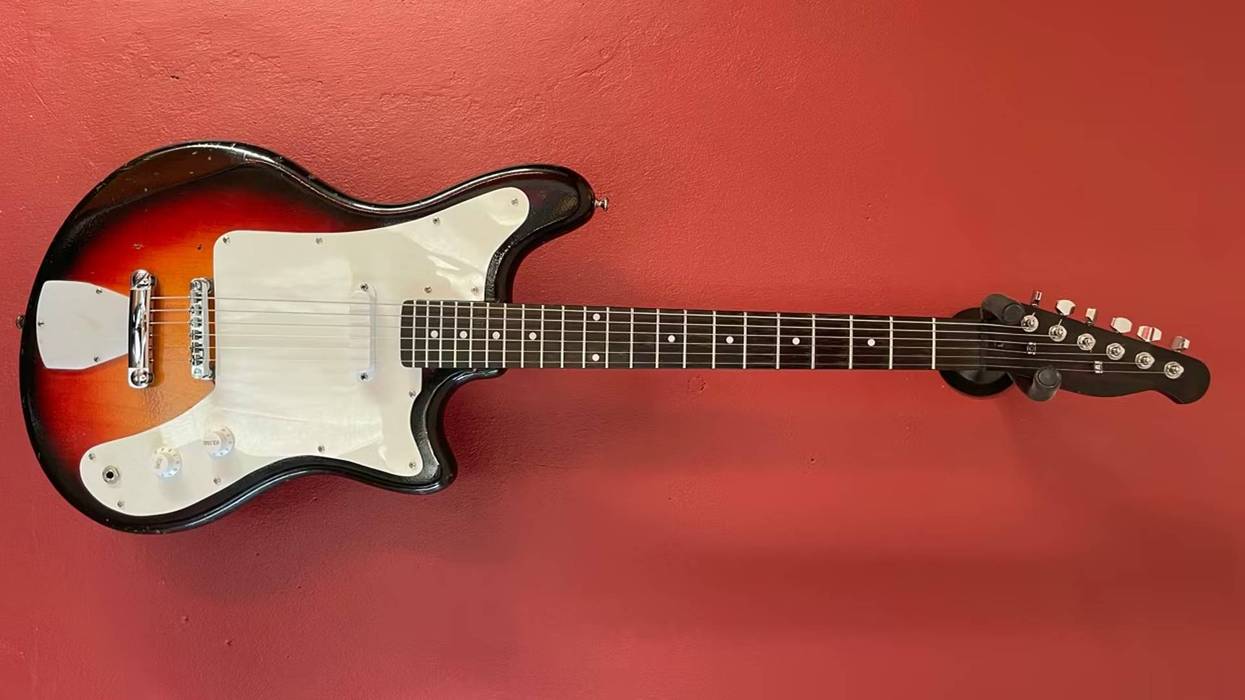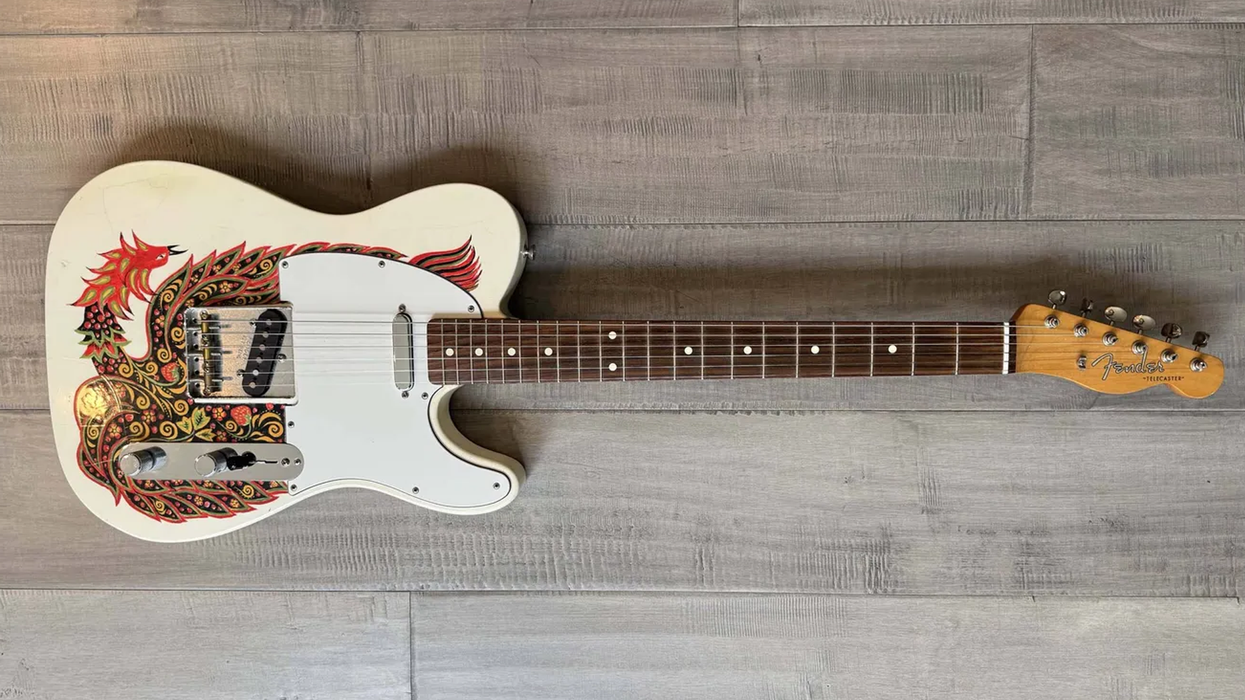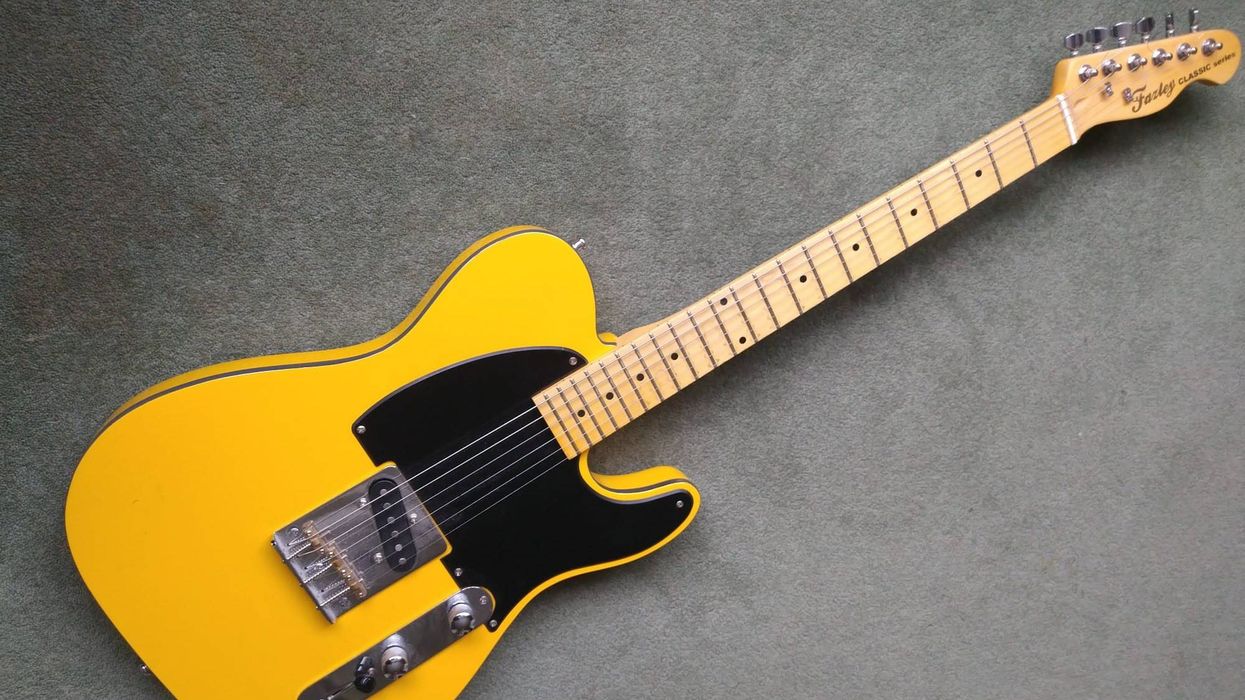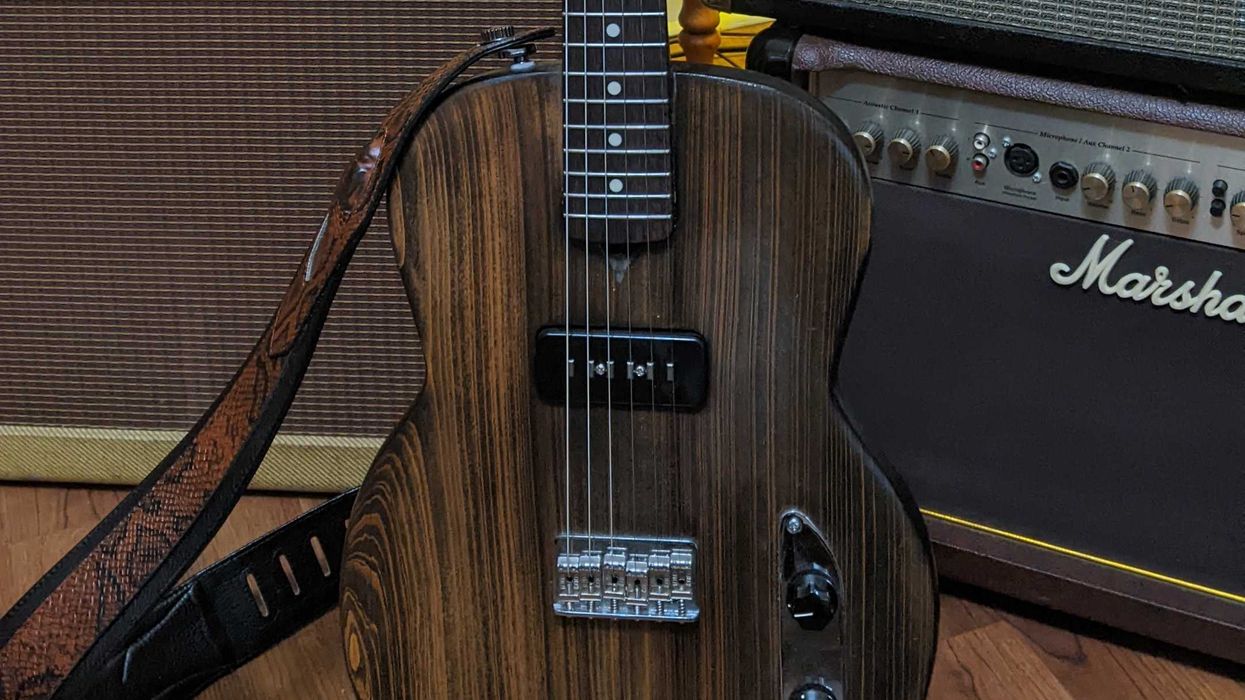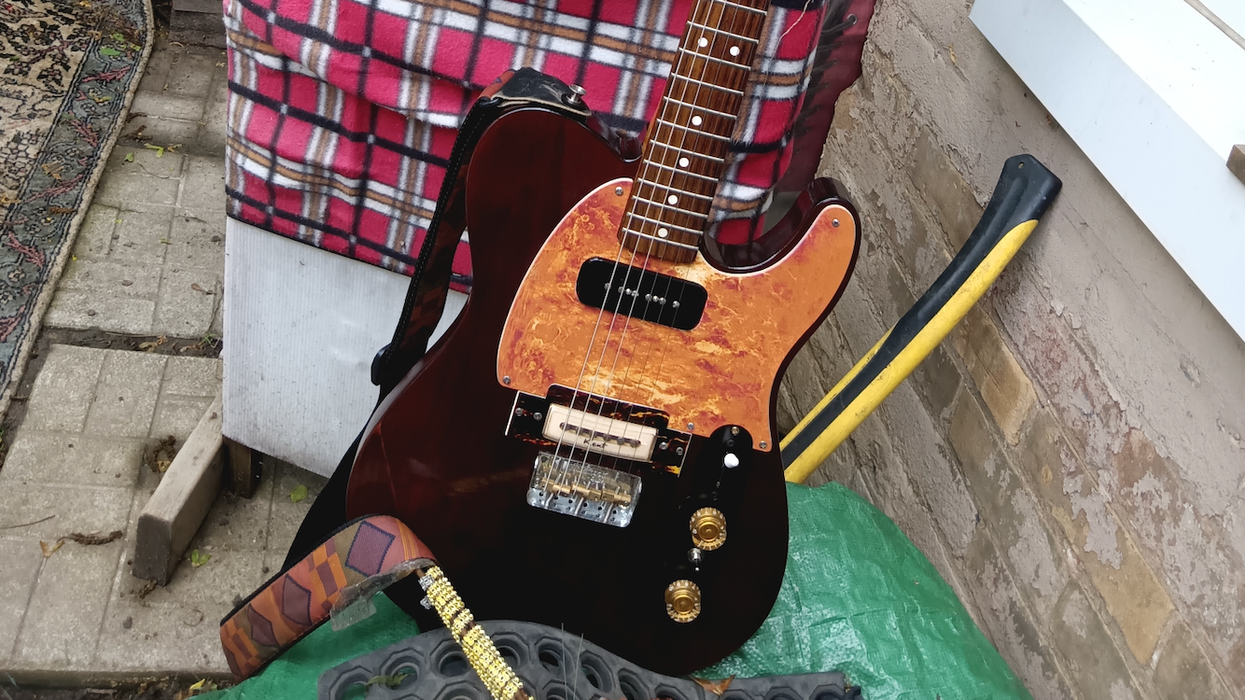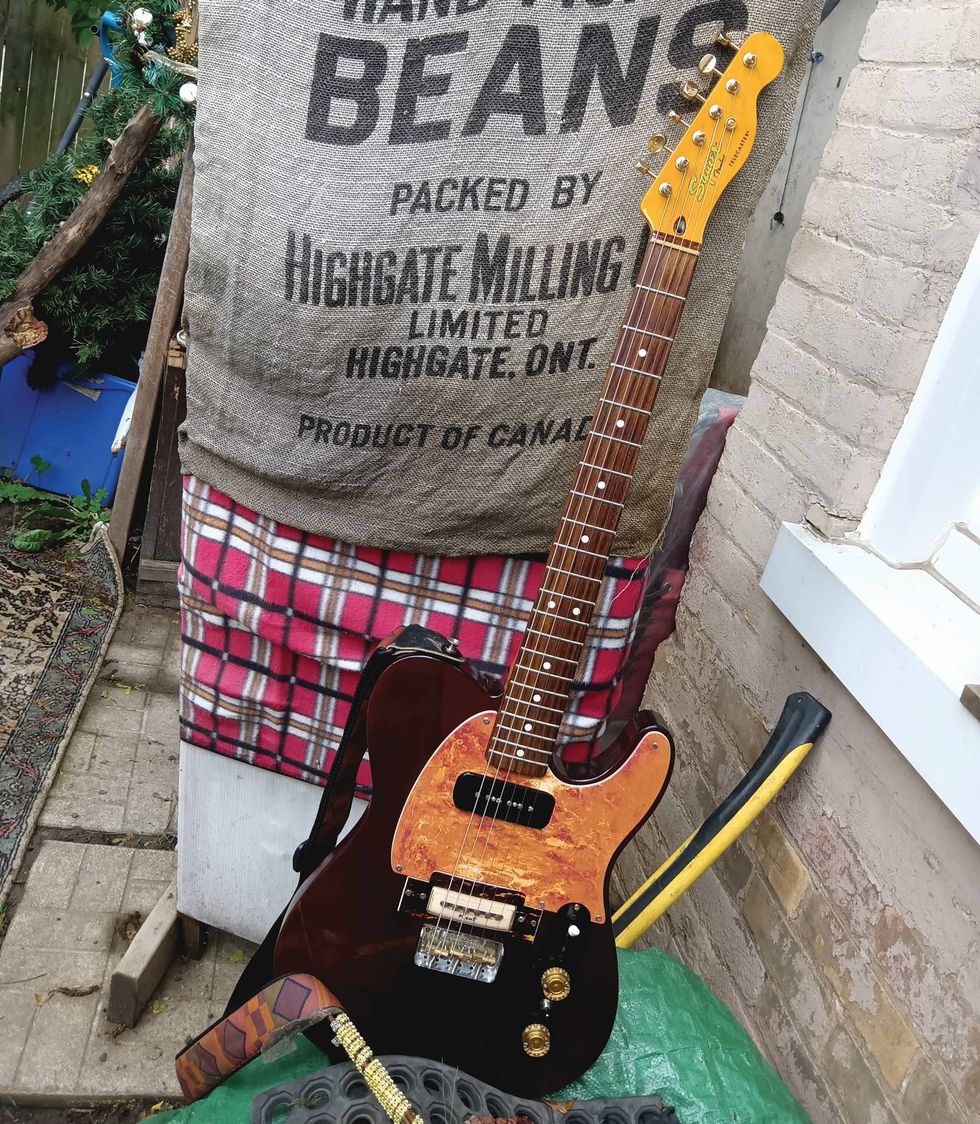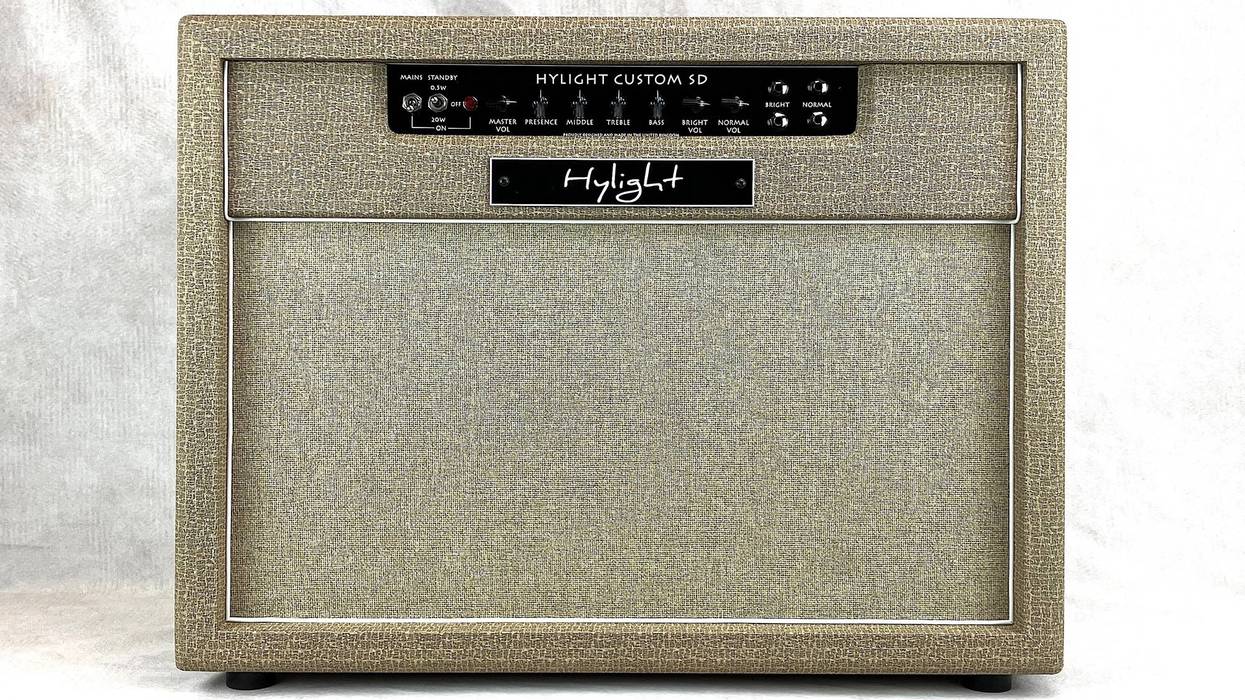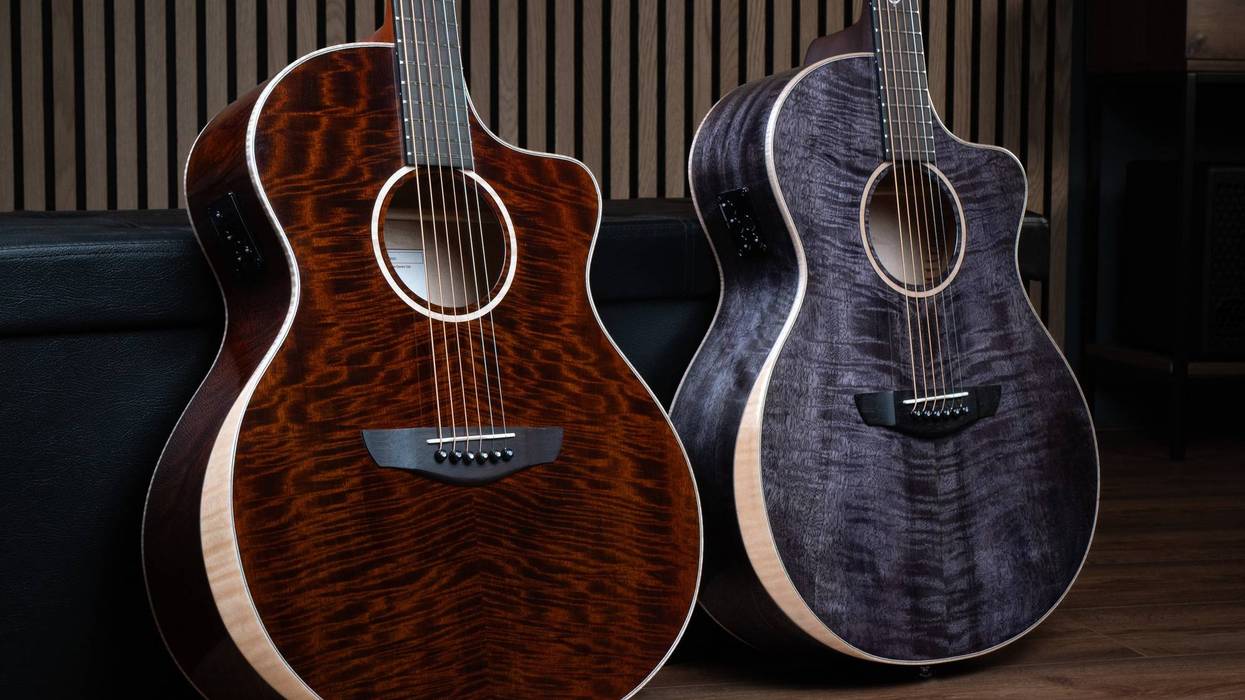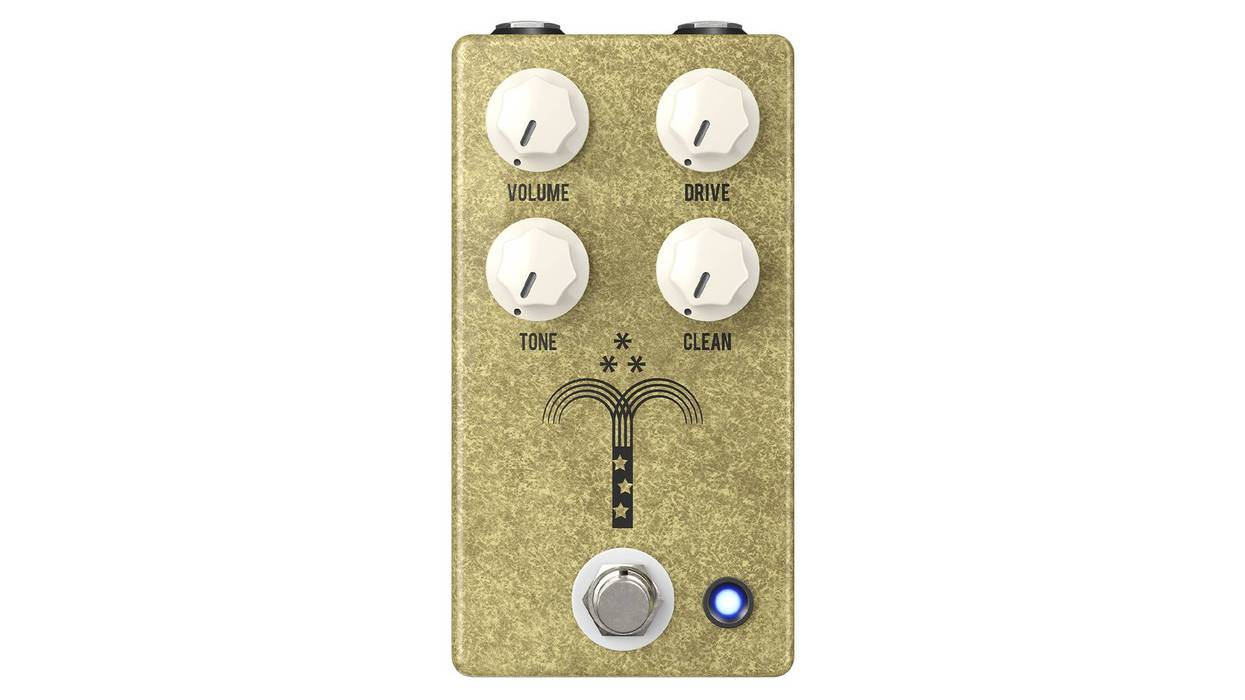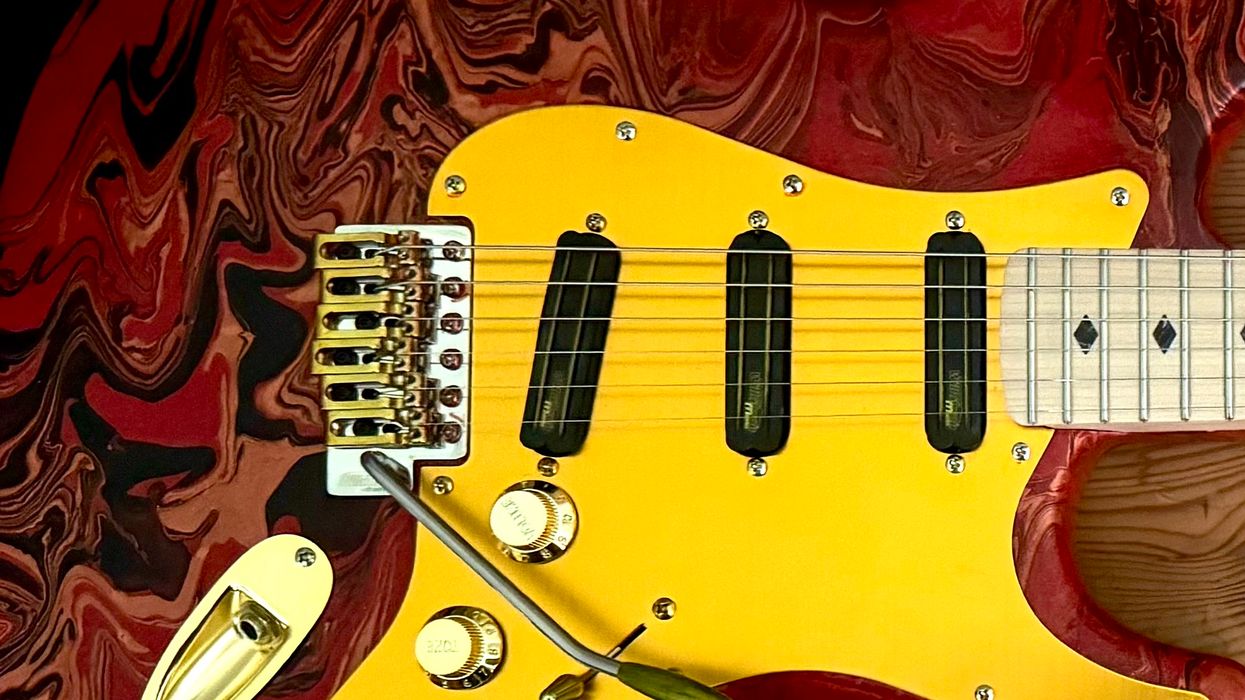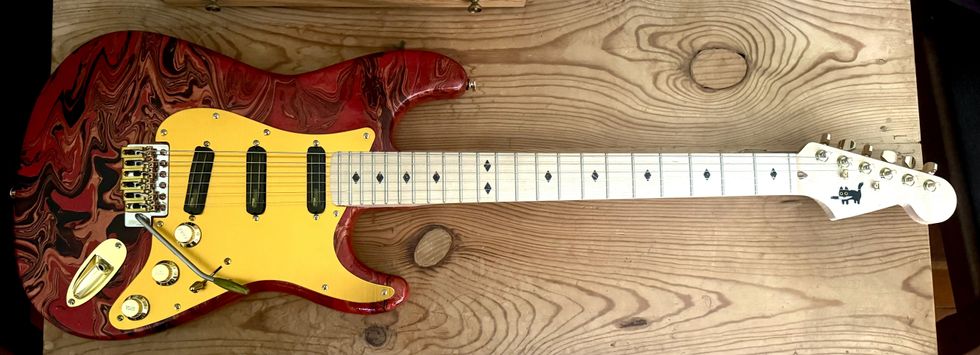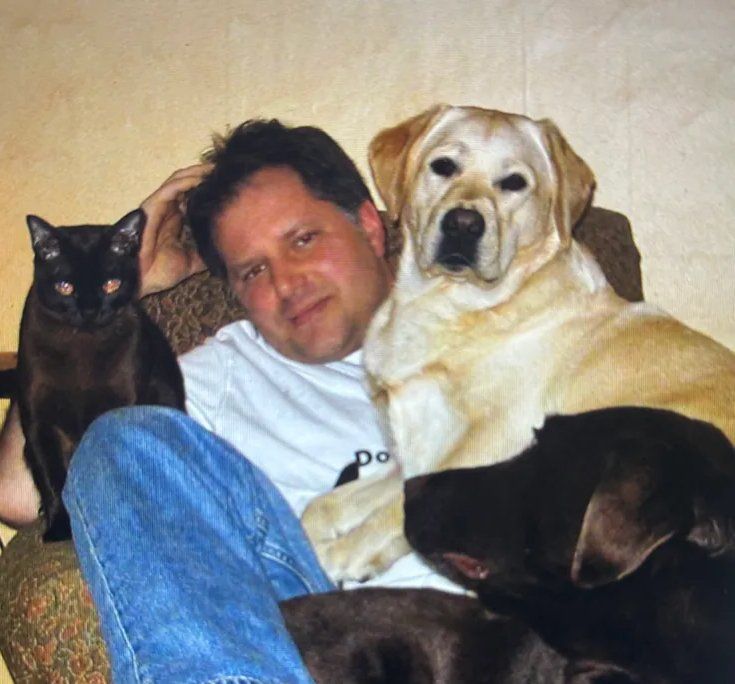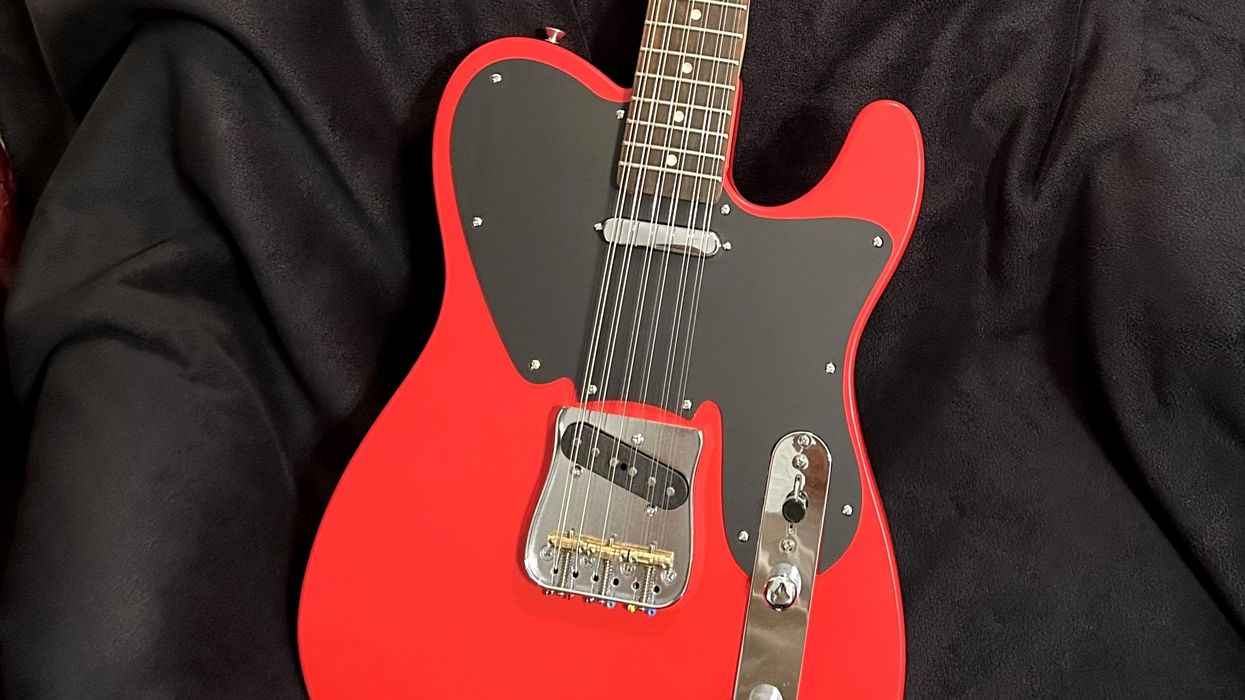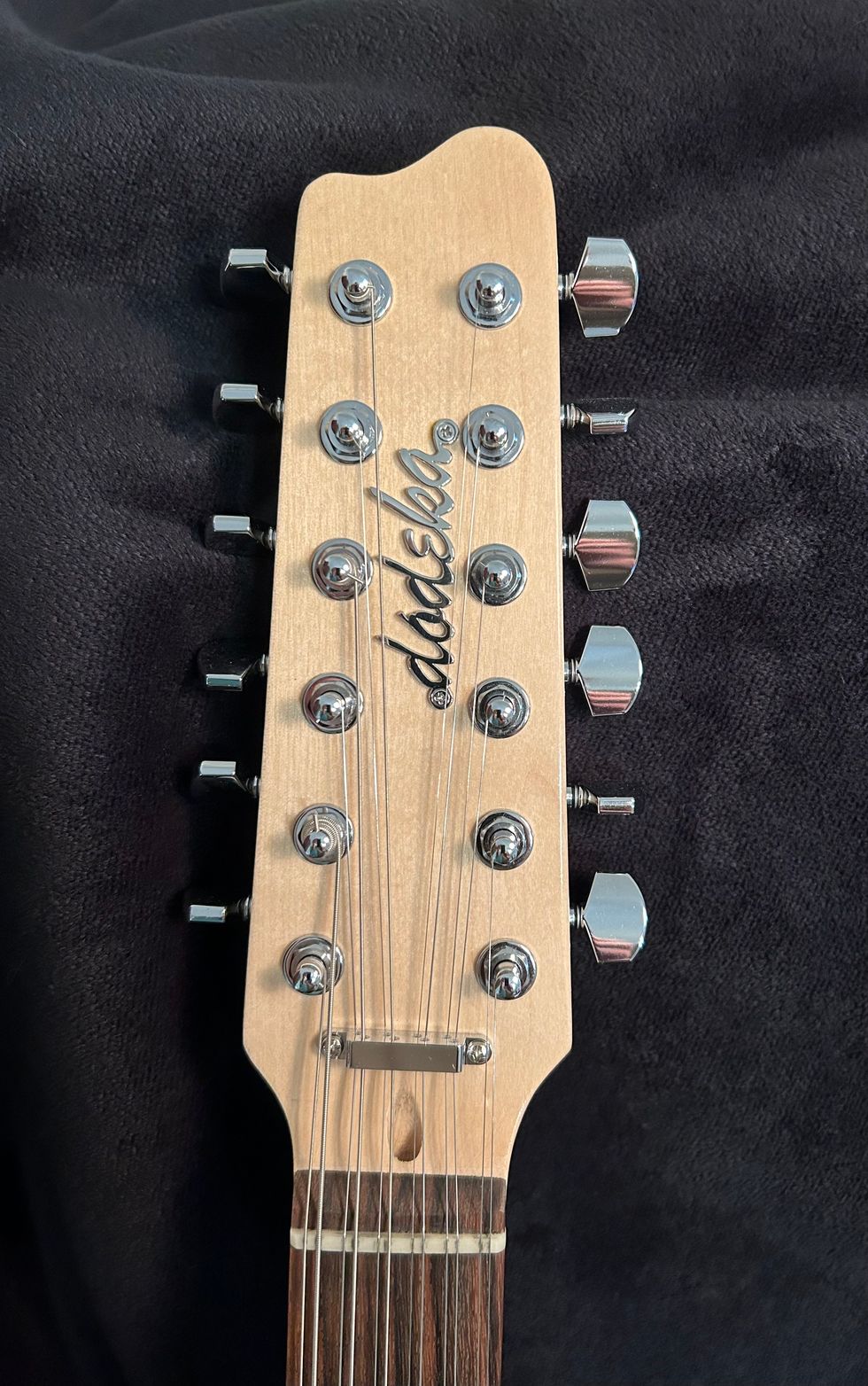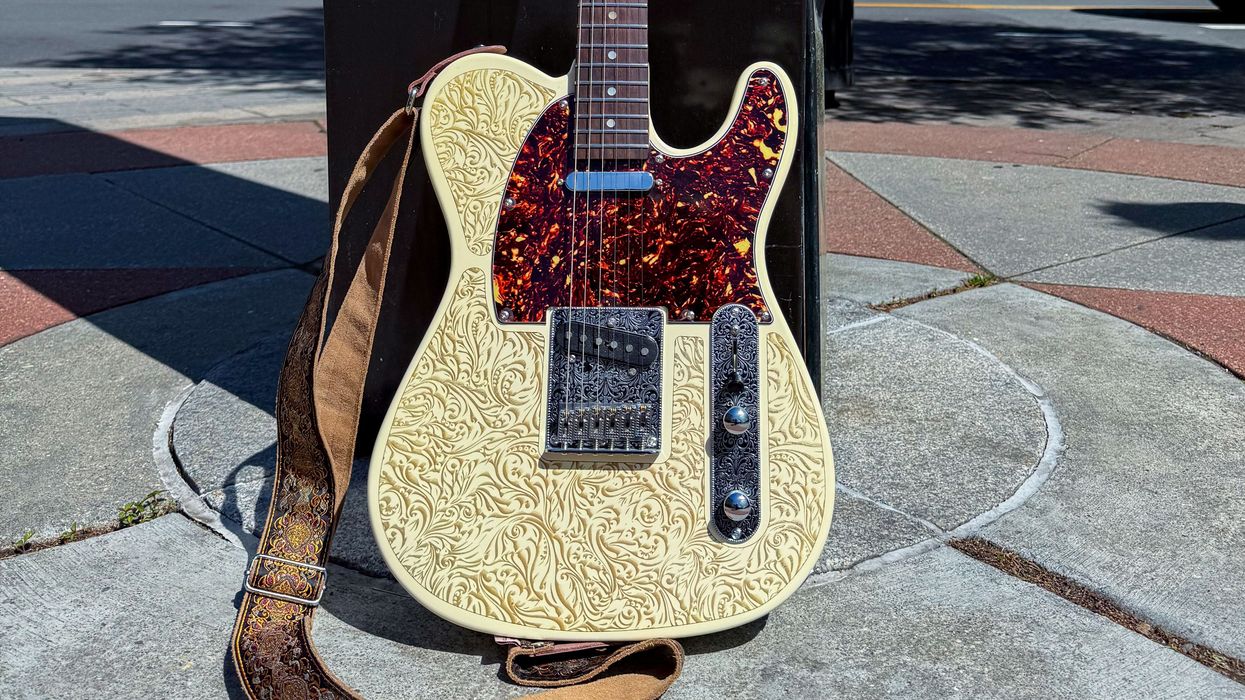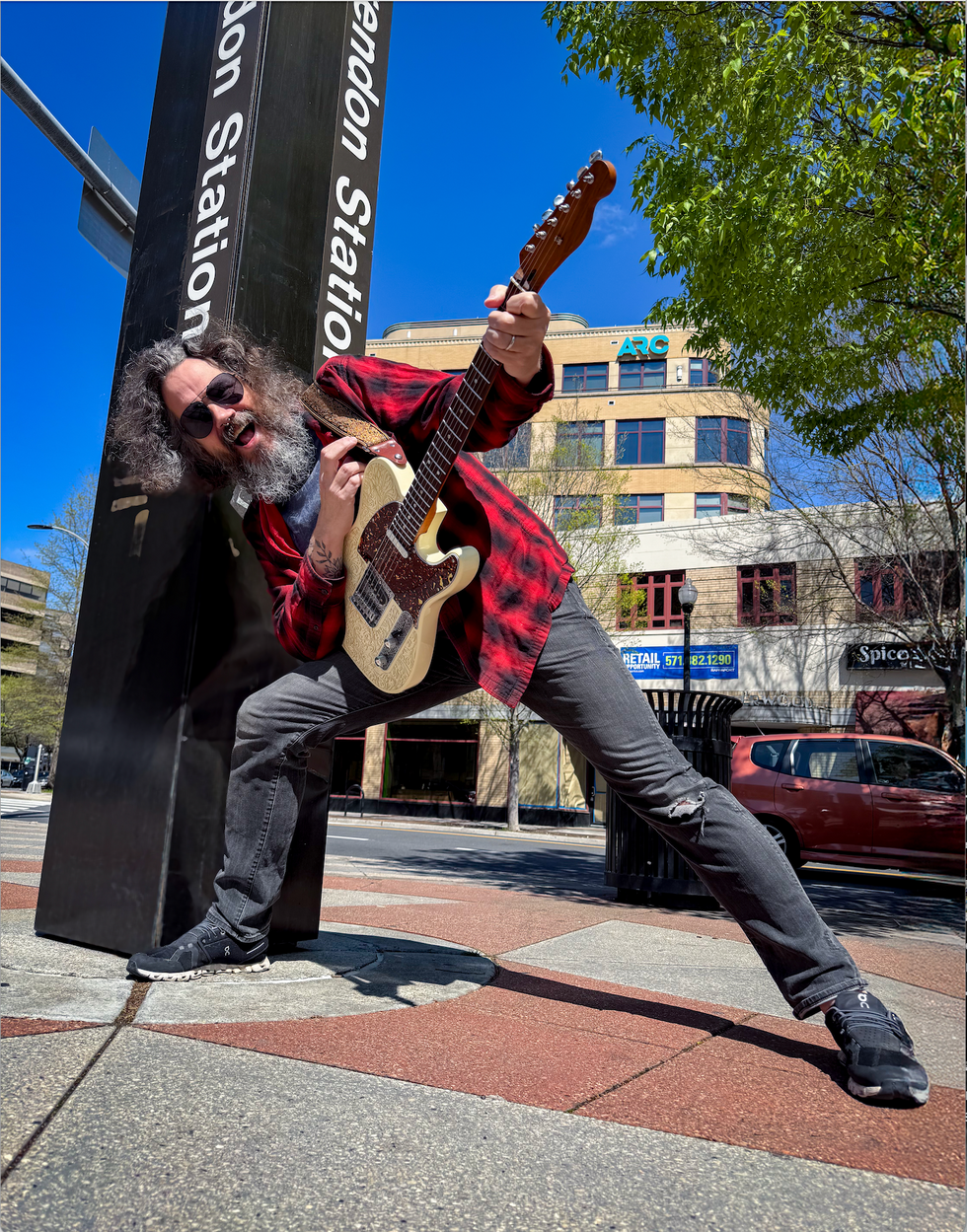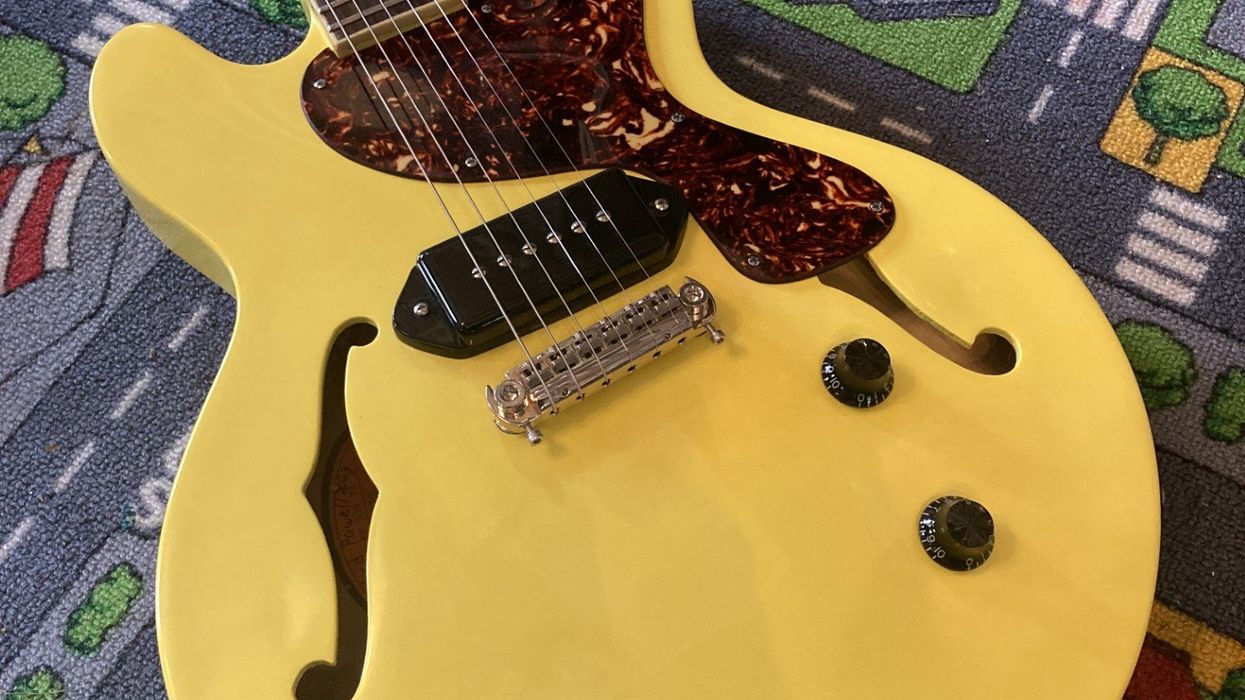I’m an avid reader of Premier Guitar and have been modding Fenders since I can remember—way before the name “partscaster” was ever used. I’ve been battling bladder cancer the past few years. Little did I know just how important my love for single-coil Strats was going to change my life. Due to the Covid-19 shutdown, I couldn’t have surgery for five months until hospitals opened surgical wards again. I was going through chemo treatments and cancer was consuming my life. I had to find a way to keep myself and my mind busy. I couldn’t be around anyone, so what was I supposed to do? It seemed like every waking moment was being consumed by thoughts of cancer, cancer, cancer.
Believing I had very little time left, I decided to tackle some “bucket list” projects. Two things I’d never done: 1. Learn how to paint guitars, specifically vintage nitro paint jobs on unfinished bodies, and 2. how to make pickups.
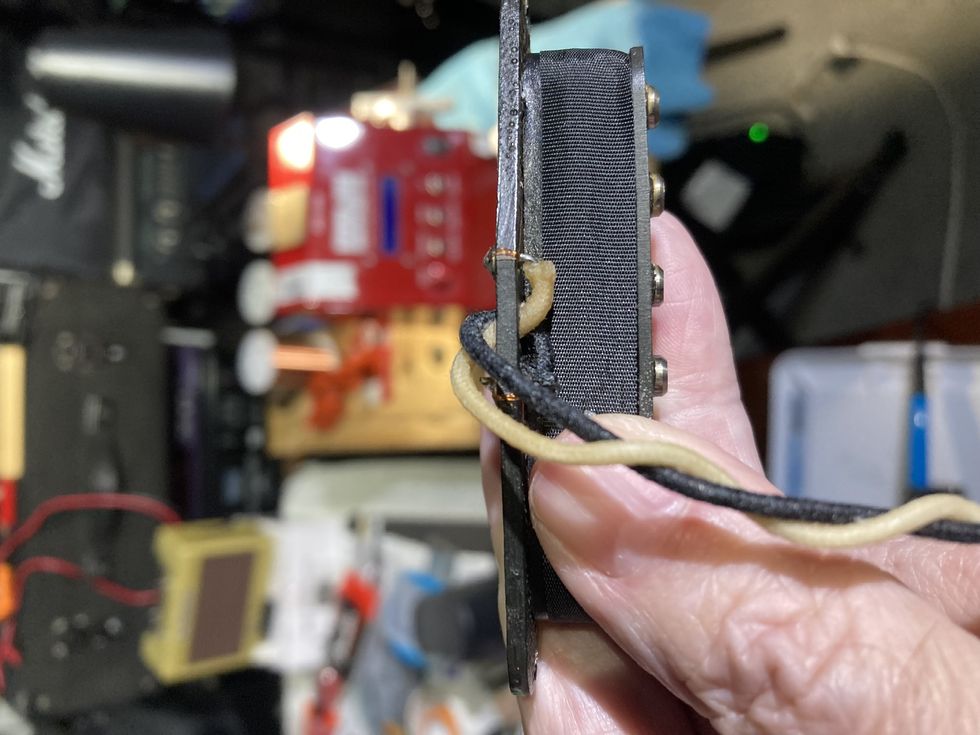
Jobe Jude holds one of his handwound pickups.
And so, it began. I contacted Gary at Branzell Guitars in Nevada, a luthier originally from my area. He told me there was a learning curve (boy, he wasn’t lying) and started guiding me through the ins and outs of making great pickups. He recommended a Mojotone Pickup Coil Winding Machine for me. My favorite vintage Fender pickups are the ’57/’62s, but they’re lacking a RWRP (reverse wound, reverse polarity) middle pickup, which really gives you that Fender quack in position 2 and 4. So, if I could get in the ballpark of the Fender ’57/’62s and Mojotone 59s, I would be a very happy builder. After trying three types of wire, my favorite tones came from vintage Formvar wire and the plain enamel. I only use Remington wire. It will unwind from the spool with no issues and the wire sounds the same, spool after spool. I soak my flatwork in lacquer and let it dry overnight before winding.
If you’re a player that has no issue dropping $400 to $500 on some handwounds, I encourage you to buy a pickup winder and learn to make your own pickups. It takes time, but you’ll learn faster than you think. You can make them get the tone you’re after. Just about any handwound pickup will beat any factory pickup. One reason I think is in the tightness. It’s all about the feel you get when doing the windings. Once you have it down, you can make the same spec pickups time after time.
Now to find unfinished bodies for painting. I ended up with six new and one used. The used body was a 1999 MIM Fender I purchased from a young lady named Julie. This was a gift from her father. After many years, she decided to repaint it. She was unhappy with the results, so she sanded it down, all the way back to unfinished wood. I bought the body and painted it shell pink. My first question about paint was: Do I buy a sprayer, or can I do it from a can? My friend Frank Harrison, who owns a hundred Strats, (he says the number is much lower) told me to find Gracey’s paint. And yes, the can works. I added a rosewood neck and named her Julie, of course. It is one great guitar.
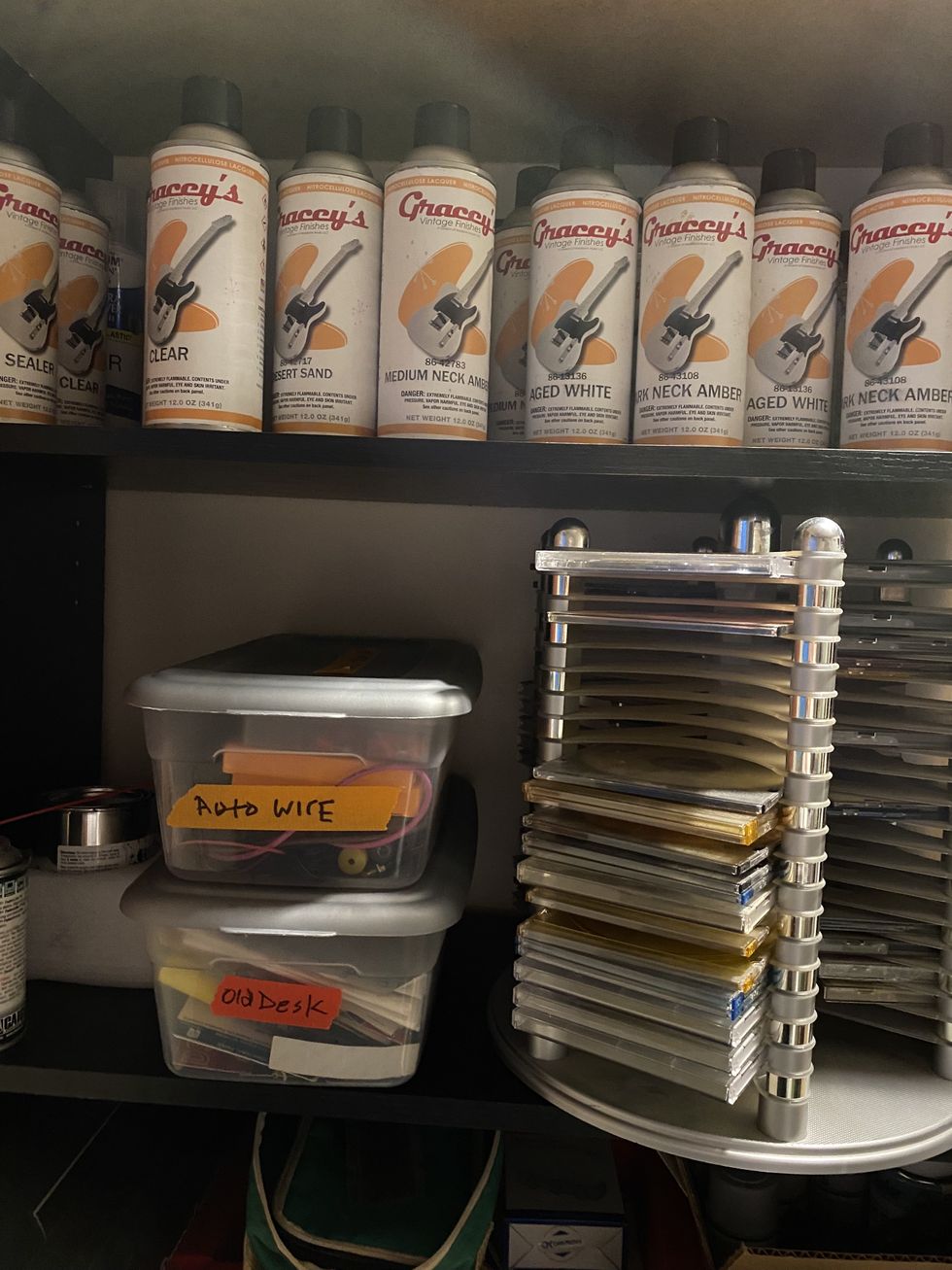
Jobe Jude’s “paint locker.“
So far, I have seven paint jobs and 13 other “partscasters” going at once. Screw you, cancer! I am keeping busy. I have learned more in the last two years than I have in 50 years of playing and working on guitars.
In 2022, I had a setback with the cancer and several rounds of treatments. On August 26, 2022, I had retesting to see if it had worked. My closest guitar warriors gathered for a cookout the following day. Good or bad news, we were all going to be together. Good news! No evidence of disease found. I’m not out of the woods; it’s cancer. But I have hope.
I hope my story can help someone. Special thanks to PG for letting me share it and everyone who helped me through this pathway.
Send your guitar story to submissions@premierguitar.com.


